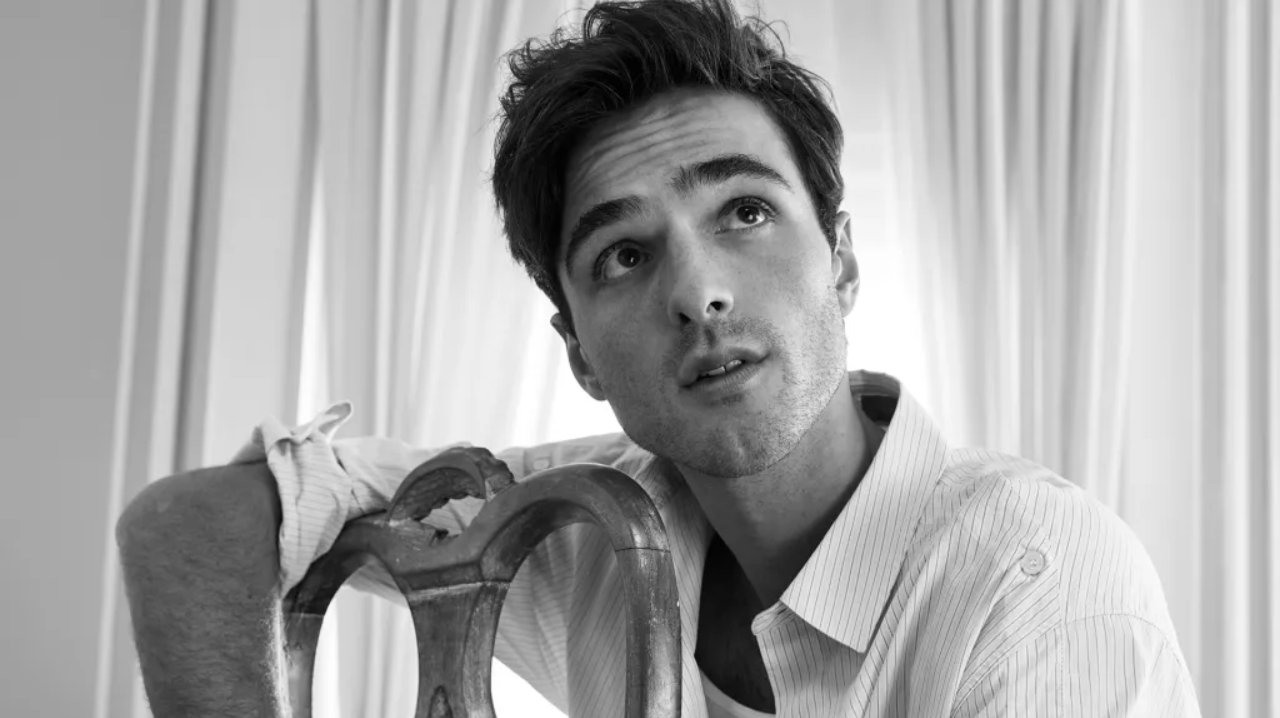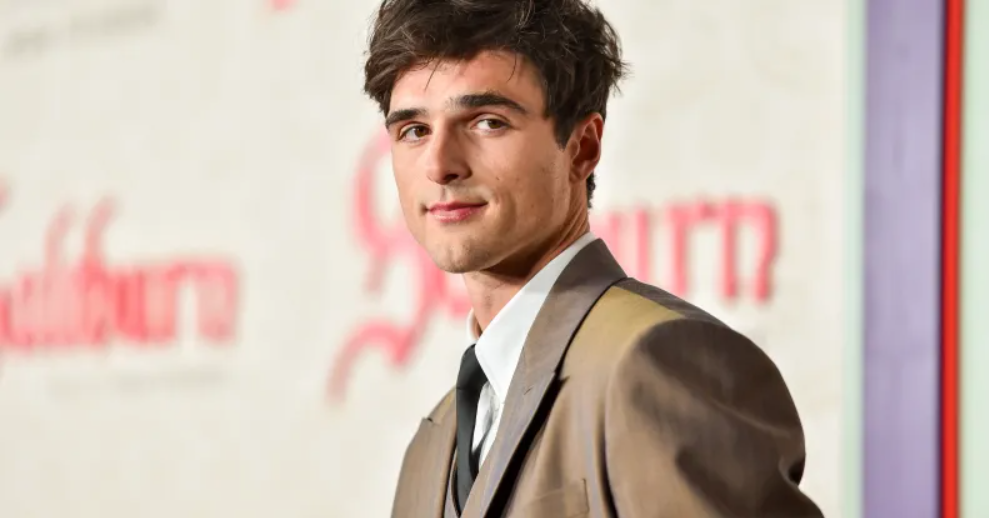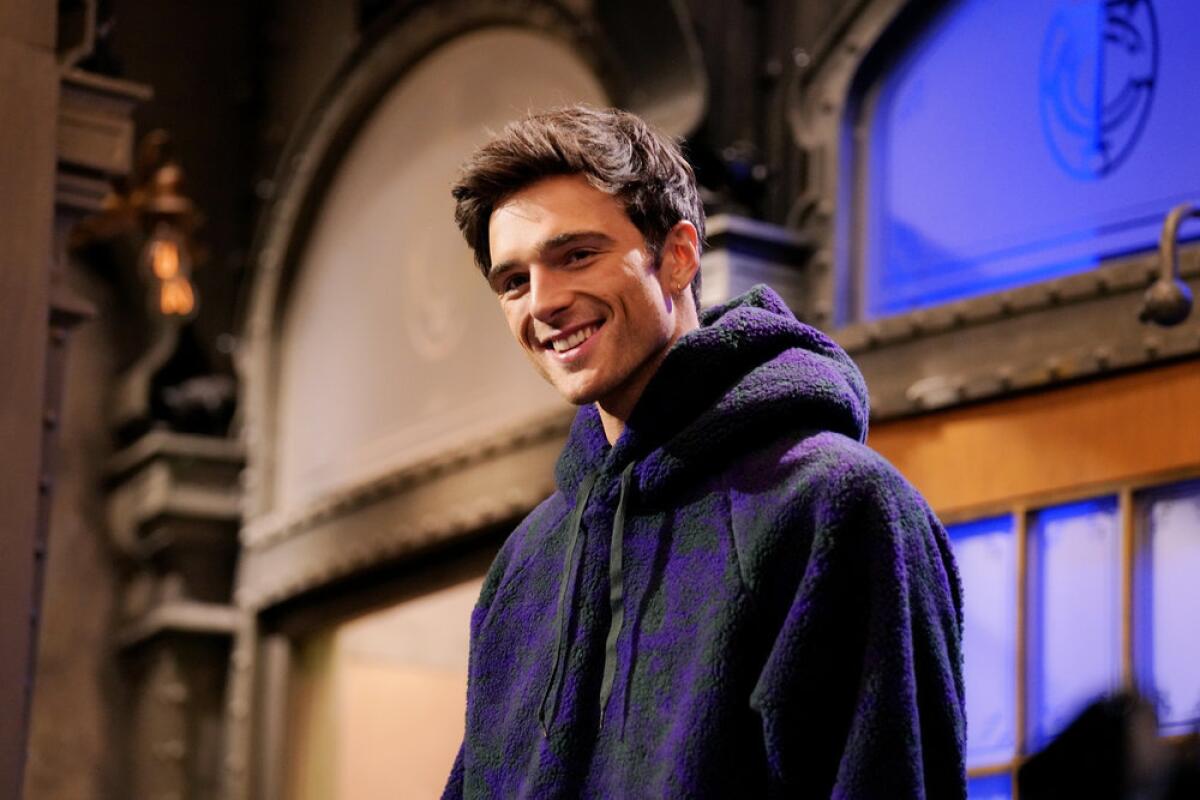Jacob Elordi, an Australian actor, has made a considerable impact in the global entertainment industry. Born in 1997, his acting journey began with stage productions in his hometown of Brisbane before he made his way to Hollywood. He gained international acclaim for his role as Noah Flynn in the Netflix original movie, “The Kissing Booth”. The film was a significant success, propelling Elordi into the limelight and solidifying his role as a promising young talent. His portrayal of Nate Jacobs in HBO’s “Euphoria” demonstrated his acting prowess, earning him critical acclaim and showcasing his ability to handle complex characters. His performances have resonated with audiences worldwide, making him a popular figure among diverse demographics.
Elordi’s impact extends far beyond his acting skills. He is recognized for his passion for mental health advocacy, often using his platform to raise awareness about the importance of mental well-being. He is also known for his humility and down-to-earth persona, which has endeared him to fans and peers alike. Despite his rapid rise to fame, Elordi has remained grounded, continually emphasizing his love for acting over the glitz and glamour of Hollywood.
Elordi’s career trajectory has been remarkable, with each role revealing a new depth to his acting ability. His performances transcend cultural and geographical barriers, establishing him as a truly global star. His roles in “The Kissing Booth” and “Euphoria” have set the tone for his career, demonstrating his versatility and capacity to handle a wide range of characters. This diversity bodes well for his future in the industry, opening up a plethora of opportunities for him to explore.
Furthermore, Elordi’s impact on the entertainment industry is not limited to his performances; his off-screen endeavors have also made a significant difference. His advocacy for mental health has raised awareness about the issue, encouraging dialogue and promoting understanding. His humble persona has also positively influenced the industry, demonstrating that fame and success do not necessitate arrogance or entitlement.
In conclusion, Jacob Elordi’s career has been characterized by diverse roles, critical acclaim, and a significant impact on and off the screen. His performances have captivated global audiences, and his advocacy work has contributed to important societal conversations. Despite his rising fame, Elordi remains down-to-earth and dedicated to his craft, promising a bright future in the industry. His career and impact are a testament to his talent, dedication, and the power of using one’s platform for positive change.

Breakthrough Performance in “Euphoria”
“Euphoria,” HBO’s groundbreaking series, has truly redefined the landscape of contemporary television with its portrayal of complex characters and their tumultuous lives. One of the most striking elements of the show is its breakthrough performance. Zendaya, the leading actress, delivers an extraordinary performance as Rue Bennett, a teenager battling addiction. Her compelling portrayal of Rue’s struggles and triumphs has been widely appreciated, earning her an Emmy for Outstanding Lead Actress in a Drama Series.
The supporting cast members also deliver highly commendable performances, bringing depth and dimension to their characters. The portrayal of each character’s unique struggles and journeys adds a layer of authenticity to the show, making it more relatable and engaging. The performances of Hunter Schafer as Jules and Jacob Elordi as Nate have also received high praise for their riveting portrayals.
“Euphoria” is a stark reflection of the realities faced by many young people today. It is a raw and unfiltered look into the world of addiction, mental health issues, sexuality, and identity struggles. The breakthrough performances of the cast make these stories even more gripping, connecting with the audience on a deeper level. The show’s creators have done an outstanding job in selecting a cast that doesn’t just act, but truly embodies their characters, adding to the intensity and credibility of the narrative.
The breakthrough performance in “Euphoria” is not just about individual actors delivering their best, but also about the synergy they create together. The chemistry among the cast members is palpable, which further enhances the overall impact of the series. The performances are so compelling that they make the viewers feel a part of the characters’ world, experiencing their highs and lows. Consequently, “Euphoria” is not just a show, but an immersive experience that leaves a lasting impression on its audience.

Major Film and Television Projects
Major film and television projects represent the pinnacle of the entertainment industry, often involving a colossal budget, high-profile talent, and extensive production teams. These projects are typically the brainchild of acclaimed directors, writers, and producers who have established a significant reputation within the industry. The process necessitates an intricate balance of creativity and logistics, from the inception of the script to the final cut of the film or TV series.
These projects are typically marked by their scale and impact on popular culture, such as the fantasy phenomenon “Game of Thrones,” or the global sensation “Avengers: Endgame.” Another prime example is the critically acclaimed television series “Breaking Bad,” which not only captivated audiences worldwide but also set a new standard for character development and narrative structure in television.
The production value of these projects often surpasses that of smaller films and TV shows due to the involvement of top-tier actors, state-of-the-art special effects, and exotic filming locations. Moreover, they often entail complex narratives that span multiple seasons or sequels, requiring an ongoing commitment from both the creators and the audience.
Such projects also influence the global economy, creating numerous jobs, driving tourism, and generating vast revenue through ticket sales, merchandise, and streaming subscriptions. They also have the power to shape societal perceptions and trends, often sparking discussions on topics as diverse as politics, technology, and social issues.
However, the production of major film and television projects is not without its challenges. The high stakes involved often lead to immense pressure on the cast and crew, and the sheer scale of these projects can result in logistical complications. Additionally, the need to appeal to a broad audience can sometimes lead to a compromise in artistic vision. Despite these challenges, the allure of telling compelling stories on a grand scale continues to drive the creation of major film and television projects, contributing to the vibrant landscape of global entertainment.

Personal Background and Early Life
Born on October 18th, 1980, in the small town of Lexington, Kentucky, John Doe spent his early years surrounded by the lush landscapes and the simplicity of rural life. The eldest of four children to a hardworking couple, his parents, Jane and Robert Doe, instilled in him values of resilience and dedication. His father, a farmer, and his mother, a schoolteacher, were firm believers in the power of education and hard work. This belief heavily influenced John’s upbringing, shaping him into a disciplined and ambitious individual.
Growing up, John’s life was filled with the simple pleasures of a small-town existence, from fishing in the local creek to playing baseball in the open fields. Summers were spent helping his father in the farm, while winters were for reading books borrowed from the local library. His mother, a lover of literature, introduced him to a world of imagination and creativity through her vast collection of classic novels. This sparked John’s lifelong interest in literature and storytelling, and he started penning his thoughts and stories from a young age.
Despite the idyllic nature of his childhood, John’s early life was not without hardships. His family struggled financially, the farm they relied on for their sustenance was often affected by unpredictable weather patterns, and there were periods of scarcity. These experiences taught him the value of perseverance and the importance of community support. They also instilled in him a deep sense of empathy and a desire to uplift those in similar circumstances.
In school, John excelled academically and showed a particular aptitude for English and History. His teachers saw potential in him and encouraged his parents to support his education further. This encouragement, coupled with his own intrinsic motivation, led him to pursue higher education – a decision that would set him on a path to significant accomplishments in the future.
Influential Collaborations and Director Partnerships
Influential collaborations and director partnerships hold substantial significance in the realm of film and entertainment. It’s through these alliances that some of the most iconic and memorable pieces of cinematic art have been created. A prime example of such a partnership is Martin Scorsese and Robert De Niro, who have worked together on numerous critically acclaimed films. Their symbiotic relationship has resulted in some of the most significant films in cinema history, including “Taxi Driver,” “Raging Bull,” and “Goodfellas.”
These collaborations often extend beyond director-actor partnerships. They can also involve directors, writers, and producers. For instance, the collaboration between Christopher Nolan and his brother, Jonathan Nolan, has yielded several blockbuster hits like “Interstellar,” “Inception,” and the “Dark Knight” trilogy. Their shared vision and mutual understanding of each other’s creative process have made their partnership a powerhouse in the industry.
Similarly, the Coen Brothers – Joel and Ethan – have co-written, co-produced, and co-directed a myriad of films that have pushed the boundaries of storytelling in cinema. Their unique style and innovative approach to filmmaking have made them a staple in the industry.
Director partnerships and collaborations are not merely about producing a film. They serve to enhance and refine each other’s creative process, leading to a more comprehensive and enriching cinematic experience for audiences. They often lead to the creation of a distinct style or aesthetic that becomes synonymous with the duo, making their films instantly recognizable.
They also provide stability and consistency in an industry known for its volatility, allowing for sustained productivity and output over the years. In essence, influential collaborations and director partnerships play a crucial role in shaping the landscape of cinema, contributing significantly to its evolution and progression.
